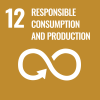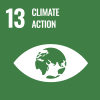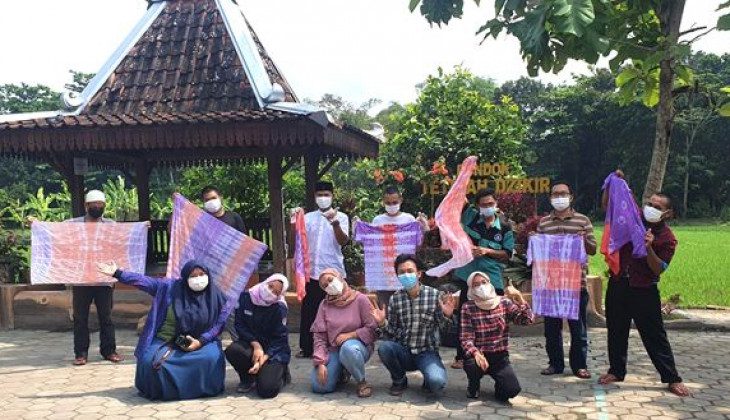UGM students Savira Noor Febry, Risa Dewi Ariani, and Ulayya Zahiyatul Arifin from the Faculty of Social and Political Sciences, and Tasnim Arma Fauzia and Naufal Habibi from the Faculty of Engineering developed entrepreneurial training for students at the Pondok Tetirah Dzikir Rehabilitation Institution through training on making tie-dye batik and eco prints. Students at the boarding school are also taught how to market their products. “Hopefully, the profits from the sale of these products can help increase the operational funds of the boarding school, which so far relies a lot on outside donations,” said Savira in a release sent Tuesday (19/10).
According to Savira, Islamic boarding schools, in general, have potential that can be developed from human resources and other resources available at the boarding school. The training activity involved students who had made tie-dye batik and eco print several times. The students produced about 40 tie-dye batik T-shirts and several meters of eco print. “Marketing activities have resulted in selling out 17 tie-dye batik T-shirts,” said Savira while mentioning that the program was implemented in the context of the Community Empowerment-based Student Creativity Program (PKM).
According to Savira, the santri with the PKM team also organize sustainable, independent business units. In managing this business unit, students are positioned in various fields such as marketing, production, distribution, and trainers. The team and students marketed the products on Instagram to facilitate promotion and collaboration. “In marketing activities, it has successfully reached several influencers,” he explained.
Rizal as the person in charge and administrator of the Pondok Tetirah Dzikir Rehabilitation Center said that this project could give the students the entrepreneurial spirit and new skills. “The students are more able to express their emotions through eco print and tie-dye batik media,” he said.
Rizal hopes that this program could create an entrepreneurial climate within the Pondok Tetirah Dhikr Rehabilitation Center so that it has additional income beyond external donations. But more than that, this program also maximizes and improves the students’ skills through tie-dye batik, eco print, and marketing. “After returning to the community, we hope that the students can live independently as independent individuals,” he concluded.



